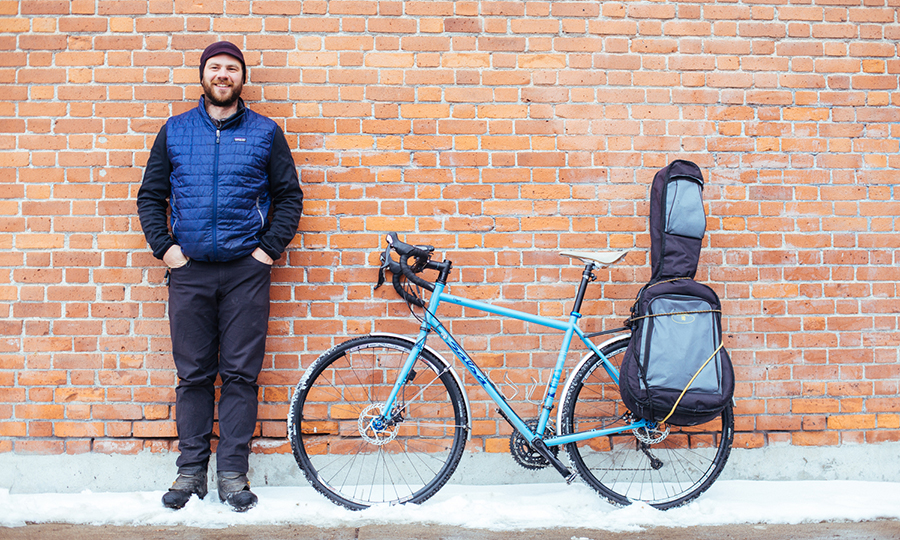
It took a kit of gear and a sense of adventure. But this past fall musician Ben Weaver completely changed the way he organized a record tour.
He left his band’s van at home. A bike loaded with bags and a rack, including a custom setup sewn to fit a banjo, served as transport on a 1,400-mile trip from Minneapolis to New Orleans.
With the shift in transportation came a new approach on where to play — schools, farms, a bike shop, and other untraditional venues were scheduled instead of bars. “I realized recently that playing a dive bar show in Cleveland for drunk people wasn’t the best use of anyone’s time,” he said.
Gear Junkie – Ben Weaver Interview from Erik Nelson on Vimeo.
The bike tour was planned to launch Weaver’s eighth album, “I Would Rather Be A Buffalo” (Hymie’s Records). Over the past two years he’d traveled by bike to play gigs, including on short tours. But at 25 days long the trip to New Orleans was a new level.
He followed the Mississippi River. His audience skewed younger and vastly more sober than any before, including a Catholic Worker Farm and a book shop. He played a gig at Aldo Leopold Middle School in Iowa.

The tour changed Weaver on a few fronts. The perpetual motion and adventure of a bike trip was a needed break from the grind of life. The energy he got from new audiences, Weaver said, was reaffirming of his craft.
He had a few epiphanies on gear as well. “Just bring less stuff,” he said. “Bike touring requires very little — some food, your bike tools, raingear, and the clothes on your back.”
To that extent, he packed only two sets of clothing the whole trip, including a jersey and bike shorts from the brand Search And State. He washed the clothes each night in a sink at a motel or a farmhouse where they’d arranged to stay.

Banjo Brothers, a Minneapolis company, sponsored Weaver by outfitting his bike. The company made a “franken bag” by converting one of its panniers into a waterproof Banjo hauler with a custom cover.

A guitar graced the other side of his bike rack, letting Weaver pick an instrument of choice for solo shows. A dry bag stuffed with clothing and small items was on top.
His bike, a Vaya model from Salsa Cycles, had the requisite attachment points for fenders and racks. It’s a road bike that can handle gravel and pavement, taking tires up to 42mm wide and made with a stable frame geometry for control during long days in the saddle.

He brought a kit of tools for repairs. His foul-weather gear came from O2 Rainwear, a company that donated waterproof-breathable jacket and pants that together weigh just a few ounces.
Fancy equipment aside, I asked Weaver about his most important gear for the grind of the road: “Bungee cords, hands down,” he said. “Carrying a banjo and a guitar on a bike is not easy, but if you cinch it all tight enough on the rack they will stay in place.”






